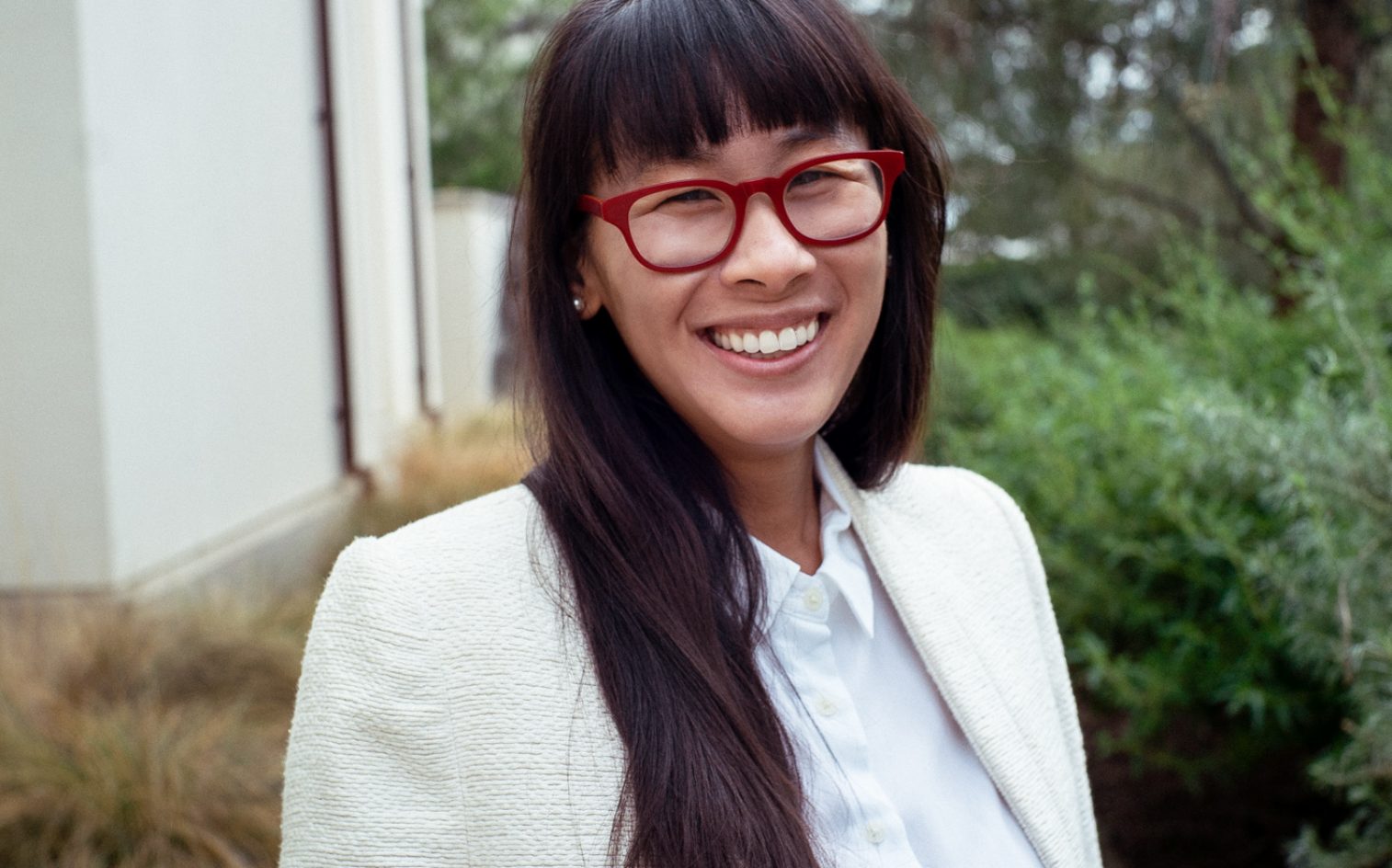Dr. Katherine Loi’s journey as a dentist hasn’t been your typical one. She joined Venice Family Clinic late last summer after years of providing care to various groups of people, in both civilian and military settings. Now Dr. Loi finds herself back in her native California and at a community health center, providing oral health care and education to her patients in an environment she excels in.
Dr. Loi is one of the dentists we hired in the past year thanks to a grant from Delta Dental, allowing Venice Family Clinic to provide dental care to more people who need it. We spoke with Dr. Loi about her time in the Army, why she returned to a community health center and what she enjoys most about being a dentist.
Venice Family Clinic: Tell us about your background as a dentist.
Katherine Loi: I went to USC for dental school on a military medical scholarship, and then I was in the Army at Fort Sill in Oklahoma for over 4.5 years as a dentist for soldiers. I enjoyed serving that population, which is more reflective of the make-up of the whole country than the East Bay where I grew up or Los Angeles where I’d done my schooling. After I served my time in the Army, I came back to Los Angeles to work at a community health center, providing dental care in a mobile clinic throughout the LA and OC areas. I also worked in private practice for a while, but I found working in a community clinic more rewarding, so I was excited to join Venice Family Clinic.
Clinic: Why did you choose dentistry?
KL: I became interested in dentistry because of the artistry involved. Dentists are sculptors in the mouth. To make a really good filling, you have to be a good sculptor to make it look like a natural tooth. We work in millimeters. A lot of work goes into making it look easy because we don’t want to make it stressful for our patients.
Clinic: After all your varied experience, why did you decide to go back to a community health center?
KL: I see myself as an oral health care provider, not just a dentist. I enjoy educating my patients, and I have time to do that at a community health center because it’s not all about production. Unlike when I was in private practice, I have time to talk to my patients about things they might not know that could impact their lives, like the connection between HPV and oral cancer.
Clinic: Are there different things you have to think about with your patients while practicing at a community health center versus in private practice?
KL: When you think of some of the places where Venice Family Clinic is, like Santa Monica, you think of affluence. But there is an underserved community here. Working at Venice Family Clinic, I’ve met people who have never seen a dentist before in their lives. So I teach them the basics – how to brush and floss. I try to make it memorable. If someone isn’t flossing, I say, there’s bacteria in your mouth, and if you don’t get it out, it’s like leaving dog poop on the sidewalk. It’s gross, but they’re going to remember that. I did the same thing for the soldiers in the Army, too. I use easy-to-understand language because everyone has a different education level, but everyone knows what dog poop on the sidewalk is. I guess I try to bring a sense of humor to my work. None of my patients have complained yet!
Clinic: What is your favorite part of your job?
KL: Helping people and changing lives. One of my patients recently called me the “hands of God” because after I did an extraction for them, their pain went away. It was nice of them to say, but I was just happy to help them feel better. Also, I recently had a young patient, 25 years old, who had borderline high blood pressure. Even though it wasn’t about this patient’s oral health specifically, I suggested a change in diet: that they eat less sodium. The next time I saw them, they said they were eating less instant noodles, and I realized that this patient had made a positive change for their life because I suggested it. It was a small thing, but it made a difference to my patient’s health and to me as their clinician.
